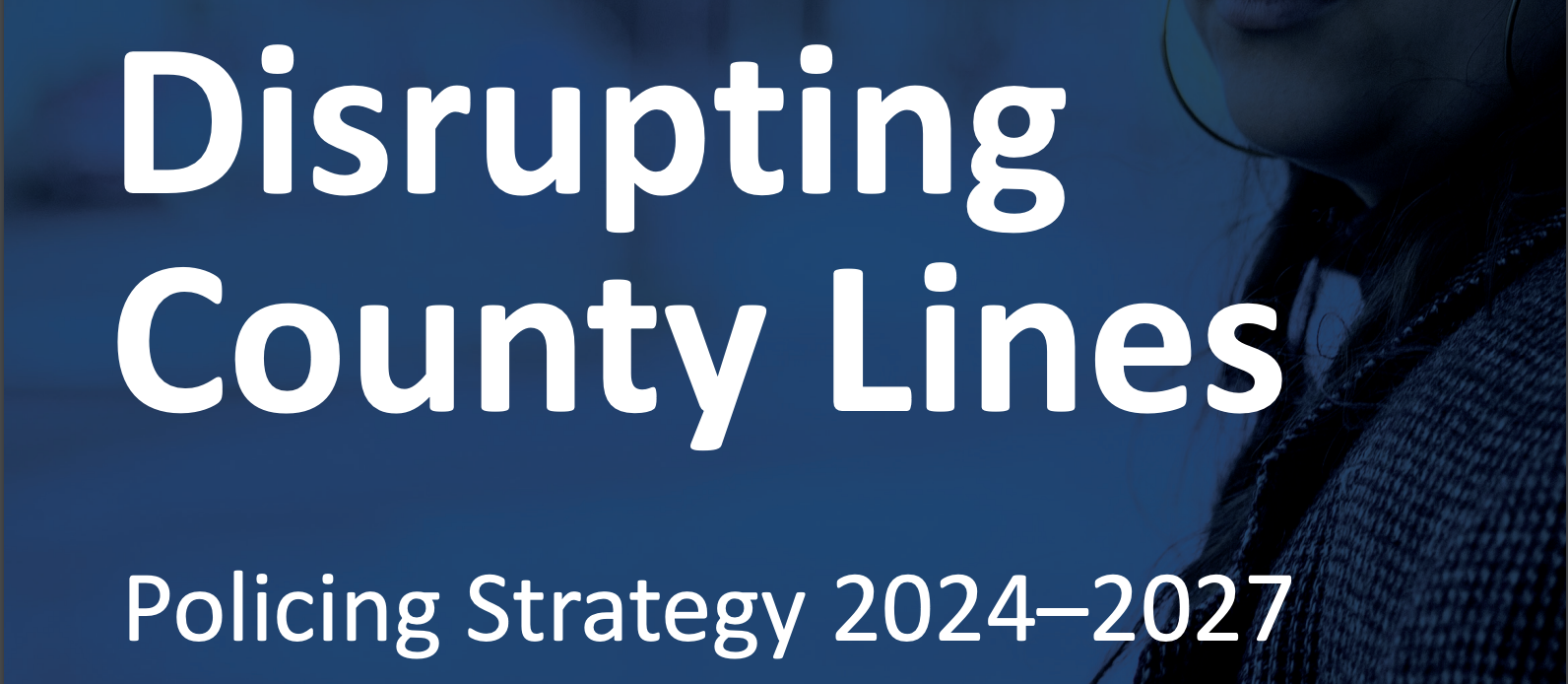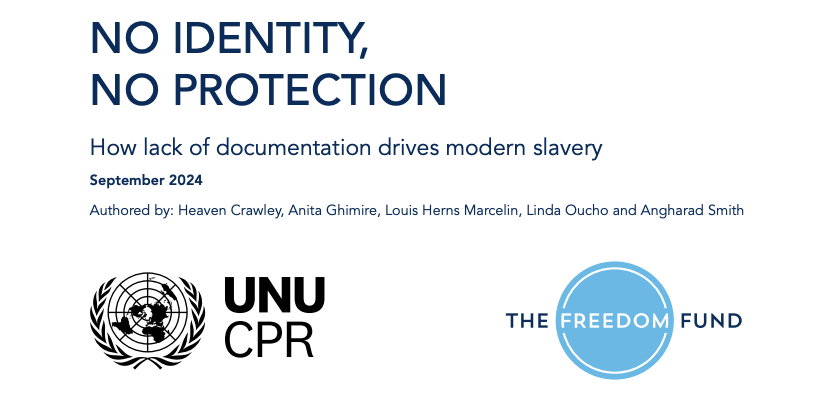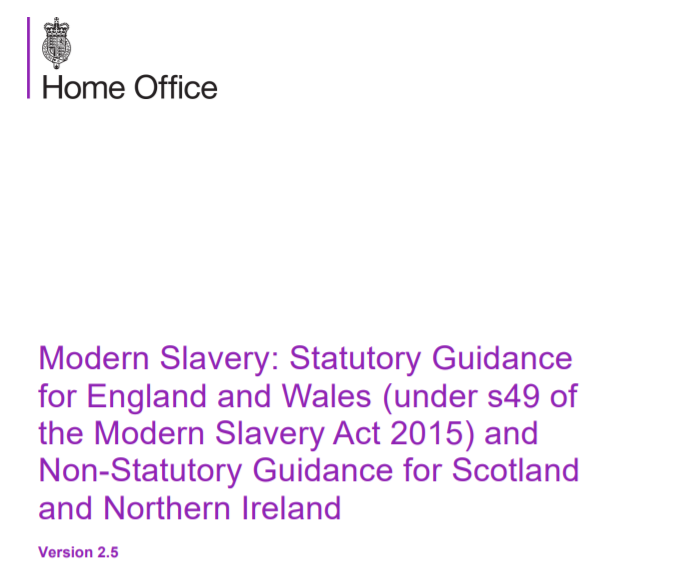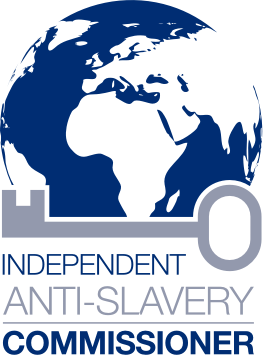
The strategy report Disrupting County Lines: Policing Strategy 2024-2027 has been released by the National Police Chief Counsel (‘NPCC’), with the National County Lines Co-Ordination Centre (‘NCLCC’). Modern slavery and human trafficking within the UK often occurs across County Lines related to illicit drug trade, which means a coordinated response is required by police forces and first responders to identify victims of exploitation. Individuals recruited to sell drugs are often vulnerable adults or minors, who need to be identified as victims of criminality and reported to the National Referral Mechanism (NRM). Most children involved in County Lines are between 15-17, however some are younger. The strategy pulls on recent statistics from the NRM whereby 11% of referrals were involved with County Lines. The strategy to disrupt County Lines was initiated in 2019, since which 5,000 drug lines have been closed. Furthermore, the strategy aims to:
- Prevent people engaging in County Lines, and the associated violence and exploitation.
- Proactively safeguard children and vulnerable adults from harm.
- Better prepare communities by building resilience against the harms of County Lines.
- Relentlessly pursue offenders, including Organised Criminal Groups, Urban Street Gangs and individuals running County Lines.
See here for the full report Disrupting County Lines: Policing Strategy 2024-2027.

Today marks International Identity Day 2024. Lack of identification is a significant risk factor in vulnerability to modern slavery and human trafficking. 850 million (1 in 9) people globally lack official documentation. This population is therefore out of reach of government protection from exploitation and abuse, as well as access to essential services including education and healthcare.
These risk factors are investigated by United Nations University Centre for Policy Research (UNU-CPR), in collaboration with the Freedom Fund. Reliefweb highlights important findings:
-
New research reveals the links between lacking official documentation and modern slavery. Without legal identity, people struggle to access basic services and are often forced into informal, dangerous and exploitative work.
-
An estimated 850 million people around the world do not have legal identity. Women, children, rural dwellers, migrants, refugees and stateless individuals are most affected.
-
Bureaucratic inefficiencies, high costs and legal gaps prevent people from securing documentation while social isolation, discrimination and stigma further worsen the situation for marginalised groups.
-
People without identity documents are often confined to informal, low-wage work where exploitation and abuse frequently go unreported due to fear of approaching authorities.
-
Government actions are urgently needed to address this global issue, including legislative reforms, community engagement and international cooperation.
See the full Freedom Fund report here.
Earlier in November 2021, UK’s Home Office published new statutory guidance on identifying and supporting modern slavery victims. Aimed at competent authority staff in England and Wales, the guidance explores what amounts to slavery, human trafficking and exploitation.
The guidance emphasis that human smuggling is not human trafficking and explains the differences between them, as well as, providing a list of myths about modern slavery and dispelling them.
The guidance also emphasises that competent authority staff, while not First Responders, should be aware of the indicators of modern slavery. It further explains system of identifying victims, lists the non-public authorities that are First Responders and further lists non-First Responder Organisations involved in tacking modern slaver and human trafficking.
The guidance then focuses on the process of referring potential victims, working with vulnerable people and the NRM decision making process. Lastly, it explores the support for adult and child victims.
Please see the government website for the full guidance.
The review, ‘The role of the financial sector in eradicating modern slavery: CEOs respond to the Independent Anti-Slavery Commissioner’, follows on an earlier engagement of the Independent Anti-Slavery Commissioner with the Themis and the Tribe Freedom Foundation and the joint report published in January 2021, ‘Preventing Modern Slavery and Human Trafficking: an Agenda for Action across the Financial Services Sector’.
The Independent Anti-Slavery Commissioner has since written to CEOs of leading companies within the financial services sector. The respondents included international banks, investment platforms, building societies and digital payment companies.
The responses received by the Independent Anti-Slavery Commissioner showed some good practice, financial services sector had not integrated modern slavery risks across all its business processes. The Commissioner has made five recommendations to the financial services sector.
To find the full list of recommendations and the full report, please see here.
The Government has published its response to the ‘Transparency in supply chains consultation’, covering changes to mandatory reporting for commercial organisations and extension of mandatory reporting requirements to the public sector. The Government commits to legislate on
- Mandate specific topics for reporting
- Introduce mandatory reporting for public bodies with a budget of £36 million or more
- Specify that public bodies will be allowed to report inn groups and clarify how
- Require organisations to report to a single reporting deadline
- Clarify the requirements on Board approval for commercial organisations
- Require statements published by public bodies to be signed off by the accounting officer, chief executive or equivalent role; and approved by the senior management body
The Government has indicated it will consider enforcement options and legislative change to introduce civil penalties for non-compliance with s.54 reporting, and the potential creation of an enforcement body.
The Government has committed that the Home Office will publish further guidance both for commercial organisation and public bodies ahead of any legislative changes. The Government also continues to develop a new Government-run reporting service which organisations will be encouraged to use before any legislative mandate.
Access the full Government response here.
The Independent Review of the Modern Slavery Act 2015 has was published this week on the 22nd May 2019. The review has identified eighty recommendations for improvements to the operation of the act and wider policies to tackle modern slavery and human trafficking in the United Kingdom. The review makes significant recommendations for how legislation should be amended to increase compliance by businesses and improve supply chain transparency, including:
- Recommendation 25: Failure to fulfil modern slavery statement reporting requirements or to act when instances of slavery are found should be an offence under the Company Directors Disqualification Act 1986.
- Recommendation 22: The legislation should be amended to require companies to consider the entirety of their supply chains [in respect of modern slavery]. If a company has not done so, it should be required to explain why it has not and what steps it is going to take in the future.
- Recommendation 18: In section 54(5) ‘may’ should be changed to ‘must’ or ‘shall’, with the effect that the six areas set out as areas that an organisation’s statement may cover will become mandatory. If a company determines that one of the headings is not applicable to their business, it should be required to explain why.
- Recommendation 32: Section 54 should be extended to the public sector. Government departments should publish a [modern slavery] statement at the end of the financial year, approved by the Department’s board and signed by the Permanent Secretary as Accounting Officer. Local government, agencies and other public authorities should publish a statement if their annual budget exceeds £36 million.
The recommendations would significantly increase the responsibility on businesses to address anti-slavery in their supply chains, and afford the government greater power to punish companies that do not comply.
The full report can be found here.
The Airports Council International have released the first edition of their handbook to help combat human trafficking. The handbook provides a variety of case studies of the work airports are carrying out in the anti-trafficking sector as well as providing an overview of the nature of human trafficking and modern slavery itself, including the types and forms of exploitation it can take.
The handbook includes sections on:
- Introduction: overview of human trafficking and the role airports can play in combating it.
- Guidance: spotting the signs of human trafficking in airports and how to respond.
- Staff Awareness: specific issues relating to staff awareness of human trafficking.
- Public Awareness: Information on campaigns, partnerships , and awareness raising of human trafficking.
- Case Studies
- Appendices: Law and policy instruments and resources.
The full handbook can be accessed here.
The Centre for the Study of Democracy has released a paper looking at human trafficking within the EU and how it can be best understood by placing the financial proceeds of human trafficking at the centre of analysis. The paper recognises that there are substantial gaps in knowledge surrounding finances in trafficking in human beings in the EU, and this in part stems from local level law enforcement lacking specific experience in dealing with organised crime finances.
The report is broken into five main sections, including:
- A general overview of the state of criminal money management (CMM), and CMM within the specific context of human trafficking.
- Contemporary trends and market structures for human trafficking in the EU countries studied.
- The role money has to play in human trafficking.
- The role and implications ICT has for human trafficking.
- Survey of the role money laundering investigations can have in tackling trafficking in human beings.
The report concludes by summarising the main findings from each section and making policy recommendations for future research and practice.
Access to the full paper can be found here.
The Advocates for Human Rights published their labour trafficking protocol guidelines on the 31st of January 2019. The guidelines are designed to help communities identify and respond to labour trafficking victims throughout Minnesota, with a particular focus on young victims in their early 20s and younger. The guidelines draw on data collected from over 100 experts and are designed to account for the complex needs of a region that has rural, suburban and urban environments.
The protocol guidelines consist of 6 sections which give:
- Background and overview to labor trafficking.
- The universal protocol, which provides guidelines to the provision of an effective and comprehensive response to labor trafficking, including sections on collaborative responses, identification, and victim protection.
- A protocol implementation worksheet as a simple tool to assist communities plan their responses to labor trafficking.
- Sector specific protocol guidelines for use in conjunction with the universal protocol;
- Recommendations for changes to the law and policy to improve Minnesota’s response to labor trafficking victims.
- Appendices.
The report was funded Office for Victims of Crime, Office of Justice Programs, U.S. Department of Justice, and the Minnesota Department of Health. The content is solely the work of The Advocates for Human Rights.
The Full report can be found here.
The UK Home Office’s Transparency in Supply Chains sector within in the Modern Slavery Act outlines the role of businesses and corporations in modern slavery prevention within their supply chains and networks. This Practical Guide provides an outline of what must be included in their annual modern slavery and human trafficking statements, and guidance on methods to produce accurate and credible documentation.
For the full UK Home Office: Transparency in Supply Chains – A Practical Guide, read here.



